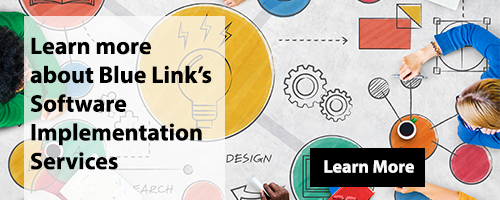Guest Post by Lauren Stafford
Companies often make the mistake of neglecting training to cut costs or to speed up the process of implementing new software. The importance of training shouldn’t be overlooked. Investing time and resources in training is necessary from the outset to save money in the longer term. You should also include training in your ERP budget to ensure there are no costly surprises later down the line.
(1) Decide on the nature of the training required and tailor it to your staff.
According to a recent study by IBM, 84% of employees in Best Performing Organizations are receiving the training they need. With training such an important factor in terms of your overall success as a company, maximizing human capital by providing the right people with the right skills is essential. You should plan to train across specific job roles according to the abilities of your staff. Don’t take a broad brush approach and assume that everyone will be able to learn in the same way.
First, establish if your vendor offers educational resources. Are they included or an optional extra? Don’t forget to assess their change management protocol. Any significant change in businesses processes should be managed to ensure staff feel supported. Training should provide an overview of how the individual fits in the framework of wider business goals. Users should be aware of how their work affects others, in the wider context of process flow.
(2) Choose the right employees to be involved in your training program.
If current staff are working on an ERP implementation project, it’s likely all employees in the organization will need to help cover job responsibilities while training and implementation are taking place. The cost of employees taking on additional work and modifying their schedules is important to consider. Not only is it important to ensure employees still have the resources available to complete their daily tasks, but that they also have the support they need from management to take on extra work while dealing with the stress of learning a new system and new processes.
When selecting your project manager, be sure that they have qualities that will help drive the implementation forward. They should be a natural leader with past experience managing large-scale projects. Good communication skills are essential as this role requires transparency and the ability to connect with staff across all levels of the company from executives to end-users.
Superusers with knowledge about processes and functionality can provide feedback on how the system is being used. They can act as a bridge between the business and IT support. In some organizations giving superusers the authority to help new trainees works to the benefit of everyone.
(3) Provide ongoing and flexible training
User-adoption rates can make or break an ERP project. Investment in the ERP system itself is one thing, but investing in your staff is the key to leveraging growth potential. A disengaged workforce can cost you dearly so it’s within your best interests to be patient and support staff through the implementation process.
29% of participants in one study said they saw the biggest skills gap in training and education on ERP related projects. Create a community where end users can discuss their experiences which will help you identify areas in which further training is required. By committing to an ongoing training plan, you’re promoting a culture of learning and efficiency, which will benefit your business in the long term. The value of staff that stay motivated and are willing to work with the technology rather than against it should not be underestimated.
About the Author: Lauren Stafford
Lauren works as a Digital Publishing Specialist at ERP Focus, a platform which gathers together the latest thinking, news and research about ERP software.












